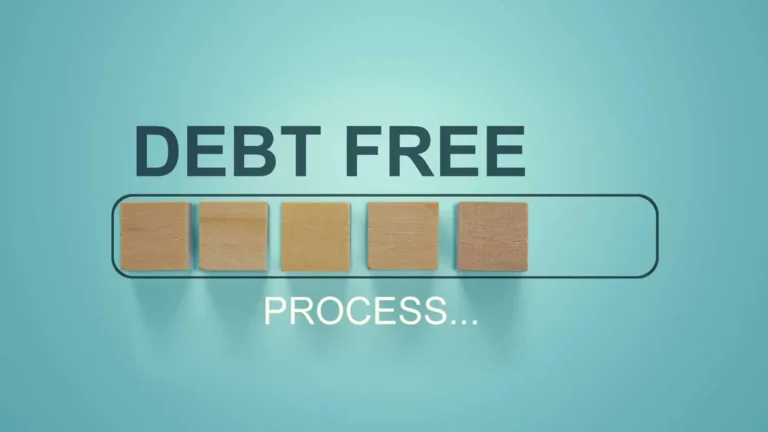The Road to Debt Freedom Begins Here
Take solace that you’ve already embarked on the first courageous step towards a brighter future by seeking guidance. This journey is not one you have to walk alone. Together, we’ll explore how debt repayment schemes can be the key to unlocking a brighter, debt-free future filled with possibilities.
Know Your Debt: A Journey of Self-Discovery
Facing your debts head-on may feel daunting, but it’s the first courageous step toward a brighter future. This journey of self-discovery begins with a meticulous assessment of your debts. Here’s a detailed breakdown of how to embark on this essential task:
List all your debts
The first crucial step in understanding your financial landscape is to compile a comprehensive list of all your monetary obligations. This exhaustive inventory should encompass various facets of your financial life, including credit cards, personal loans, mortgages, car loans, student loans, and any outstanding bills or debts to friends or family.
Categorize them by type and lender
Organizing your debts into categories based on their type (e.g., credit card debt, loans) and the respective lenders or institutions to which you owe money provides a structured overview.
This categorization not only simplifies the complexity of your financial portfolio but also enables you to grasp the nature of your debts more clearly.
Note down the outstanding balances and interest rates
Delve deeper into the details of each debt by documenting the outstanding balance you owe and the associated interest rates. This meticulous record-keeping is crucial in understanding the financial impact of each debt and identifying which ones accrue the highest interest charges. Armed with this information, you can prioritize your repayment strategy more effectively.
Calculate your total debt load
The next step is calculating your total debt load with all the information gathered. Sum up the outstanding balances of all your debts to arrive at a single, comprehensive figure.
This final tally represents the magnitude of your current financial challenge, providing a clear starting point for your journey toward economic recovery.

What is a Debt Repayment Scheme (DRS)?
A Debt Repayment Scheme, commonly known as a debt consolidation plan, is a structured initiative designed to assist individuals in effectively handling and settling their debts. This program serves as an informal agreement between debtors and creditors, facilitating the repayment of outstanding debts in a more affordable and manageable manner. This arrangement particularly benefits individuals facing financial challenges who wish to restructure their debt payments into a more feasible plan to avoid bankruptcy.
Typically administered through the Ministry of Law as the third-party debt management company, this scheme involves negotiations with creditors to secure freeze interest rates and waiver of fees.
The primary objective of a debt repayment scheme is to offer a realistic and affordable approach to debt settlement. This becomes crucial for individuals facing financial hardships struggling to meet their debt obligations. By opting for DRS, a scheme to avoid bankruptcy, individuals can restructure their payments to align with their financial capacity, thus steering clear of the drastic consequences associated with bankruptcy.

Benefits of Debt Repayment Scheme (DRS)
The Debt Repayment Scheme offers numerous benefits to individuals struggling with multiple debts in Singapore. One of the main advantages is the streamlined repayment process, which consolidates all debts into a single monthly payment. This simplifies the debtor’s financial responsibilities and eliminates the need to juggle multiple payments.
Additionally, the scheme allows freeze interest rates with creditors, reducing the overall amount that debtors have to pay. This makes the monthly payments more affordable and leads to significant savings in the long run. With lower interest rates, debtors can clear their debts within a few years, compared to the potentially endless cycle of high-interest payments.
The Debt Repayment Scheme (DRS) Singapore provides an effective solution for debt consolidation, no interest rates, and substantial savings for individuals burdened by multiple debts. It offers a clear path towards debt freedom and allows debtors to regain control of their finances.

These schemes cater to those who find themselves trapped in a cycle of mounting debts, struggling to make timely payments, and facing the prospect of financial distress. People needing debt repayment schemes often experience debt hardship, perhaps triggered by unexpected expenses or other unforeseen circumstances that disrupt their ability to manage debt effectively.
Eligibility Criteria for Debt Repayment Schemes (DRS Singapore)
Individuals often need to meet specific criteria to be eligible for these schemes. These criteria typically include having a certain amount of debt, a regular source of income, and the inability to meet current debt obligations. Additionally, individuals may need to show that they are committed to repaying their debts and are willing to adhere to the terms of the repayment plan.
Each debt repayment scheme may have its own set of eligibility criteria, so it’s important for individuals to thoroughly understand the requirements before applying for participation. Meeting the eligibility criteria is often the first step towards gaining control of one’s finances and working towards a debt-free future.
Total Liabilities
The debtor must actively monitor and control their cumulative liabilities, emphasizing that the aggregate debts owed do not exceed $150,000, with individual debts not exceeding $15,000 for eligibility. This is crucial in a debt repayment scheme, underscoring the need for the debtor to manage and limit their overall liabilities.
The importance of adhering to the $150,000 limit becomes even more pronounced when considering individuals contemplating engagement in fresh bankruptcy proceedings.
Employment and Regular Income
The eligibility criteria for the repayment scheme emphasize the importance of consistent gainful employment and a regular monthly income. These prerequisites aim to ensure a stable financial foundation for participants, enabling them to meet their obligations within the debt repayment plan.
The criteria underscore the significance of sustained financial stability and the capacity to navigate the repayment process successfully. The scheme aims to promote effective debt management and long-term financial well-being for eligible individuals.
Bankruptcy History
Individuals must not have declared bankruptcy in the preceding five years to qualify for the debt repayment scheme. This condition underscores the scheme’s dedication to admitting financially responsible individuals and preventing recurrent bankruptcies.
It highlights the significance of strategic financial management, sustained financial stability, and a focus on long-term financial well-being. The stipulation fosters a supportive environment for participants seeking relief while encouraging responsible financial conduct.
Court-Based Arrangement
Eligibility for the debt repayment scheme requires applicants not to be involved in any court-based arrangement within the last five years. This aims to ensure the commitment of debtors to actively engage with and adhere to the terms of the Debt Repayment Scheme.
By excluding recent legal debt management interventions, the scheme emphasizes the importance of proactive and responsible debt management for prospective participants.
Business Affiliation
The debtor should not be a sole proprietor, partner, or director in any firm. These criteria indicate that the Debt Repayment Scheme may be more tailored to individuals than businesses. It helps maintain a clear distinction between personal and business-related financial obligations.
The official assignee plays a pivotal role in the Debt Repayment Scheme process. Once a debtor meets the specified eligibility criteria, the official assignee undertakes a comprehensive assessment of the debtor’s suitability for the Debt Repayment Scheme. This assessment is based on the submission of pertinent forms and supporting documents by the debtor.
Key Debt Repayment Laws in Singapore
Consumer Protection (Fair Trading) Act:
The Consumer Protection (Fair Trading) Act is Singapore’s cornerstone of consumer protection. Enacted to ensure fairness in consumer transactions, this legislation acts as a safeguard against unfair practices by creditors.
It outlines the rights of consumers and imposes penalties for deceptive or unconscionable conduct. By fostering a balanced and just marketplace, this Act strives to create an environment where consumers can confidently engage in transactions.
Moneylenders Act:
Regulating the activities of moneylenders, the Moneylenders Act is a critical piece of legislation aimed at protecting borrowers from unscrupulous practices.
This Act establishes stringent licensing requirements for moneylenders, imposes interest rate caps, and sets standards for ethical lending practices. By doing so, it seeks to create a transparent and accountable lending landscape that prioritizes the welfare of borrowers.
Bankruptcy Act
The Bankruptcy Act governs the legal process of bankruptcy in Singapore. This comprehensive legislation delineates the rights and responsibilities of both debtors and creditors.
It outlines the procedures for declaring bankruptcy, ensuring a structured and fair approach to resolving financial insolvency. The Bankruptcy Act plays a crucial role in balancing the interests of debtors seeking financial relief and creditors seeking fair recourse.
Debt Repayment Scheme (DRS)
A vital alternative to bankruptcy, the Debt Repayment Scheme (DRS) offers individuals facing financial difficulties the opportunity to restructure their debts under a court-approved plan.
This scheme provides a legal framework for debtors to work towards repaying their debts in a more manageable way, avoiding the severe consequences of bankruptcy. The Debt Repayment Scheme reflects Singapore’s commitment to providing practical solutions for individuals striving to regain financial stability.
Strategic Budgeting Techniques for Faster Debt Elimination
1. Prioritize Essential Expenses
Begin by identifying and prioritizing your essential expenses, such as housing, utilities, and groceries. Ensure that these necessities are covered in your budget, providing a stable foundation for your financial well-being.
2. Create a Detailed Spending Plan
Developing a thorough spending plan is crucial for effective budgeting. This includes accounting for every penny, categorizing expenses carefully, and distinguishing between needs and wants. A detailed approach helps identify areas where you can cut back without compromising your lifestyle essentials, redirecting funds towards debt elimination.
3. Allocate a Specific Debt Repayment Fund
Designate a specific portion of your income exclusively for debt repayment. Treating debt elimination as a non-negotiable expense ensures consistent progress towards your financial goals. This deliberate allocation accelerates the rate at which you reduce your outstanding debts.
In pursuing long-term financial health, it’s essential to glean insights from seasoned financial experts with a wealth of knowledge and experience. Let’s tap into our wisdom as we share invaluable advice on overcoming debt and securing a stable and prosperous financial future.
Our Expert Advice on Long-Term Financial Health
1. Build a Robust Emergency Fund
Financial stability begins with a robust emergency fund, a cornerstone emphasized by experts across the economic spectrum. This fund is a vital safety net, providing a cushion against unforeseen expenses or income disruptions. To ensure preparedness for any financial curveball, experts recommend aiming for three to six months’ living expenses in your emergency fund.
2. Invest Strategically for Wealth Accumulation
To focus on debt repayment, experts advocate for strategic investments as a fundamental pillar of long-term financial health. Exploring diverse investment options such as stocks, bonds, and retirement accounts can provide a balanced approach. Diversifying your investment portfolio minimises risk and positions you for wealth accumulation over time, aligning with your financial goals.
3. Prioritize Retirement Planning
Securing a stress-free retirement is a crucial aspect of long-term financial planning. Financial experts stress the significance of consistent contributions to retirement accounts. Understanding the power of compounding, they advise starting to invest for your future as early as possible. Prioritizing retirement planning ensures a comfortable post-work life and reinforces a sustainable financial trajectory.
4. Smart Debt Management
While debt repayment is crucial, experts advise on smart debt management strategies. Differentiate between good and bad debt, leverage low-interest rates when possible, and use debt strategically to build wealth. Adopting a holistic approach to debt can contribute to your long-term financial well-being.
Ready to Begin Your Journey to Debt Freedom?
Take the next step towards a debt-free future by connecting with Edudebt, your partner for customized debt repayment solutions in Singapore. Our team of expert advisors is ready to assist you in creating personalized strategies that align with your financial needs.
Reach out today to explore how Edudebt can guide you towards a debt-free future. Don’t miss this opportunity to take control of your finances and pave the way for a secure and prosperous tomorrow. The journey to debt freedom begins with Edudebt – act now!





One Response